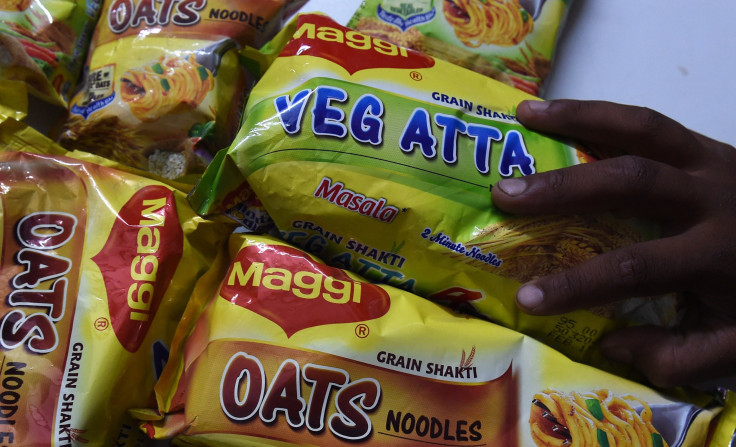Nestle Announces Low First-Half Sales Growth As Indian High Court Lifts Maggi Ban

Nestle SA on Thursday announced lower revenue growth in the first half of 2015 compared to last year, beating analyst estimates who had taken a pessimistic view following the recall of the company's Maggi brand of instant noodles in India, one of the Swiss company's biggest markets. The fall in sales growth was also attributed to the high value of the Swiss franc.
Nestle generated profits of 4.1 billion Swiss francs ($4.5 billion) for the first half, a 2.5 percent drop over sales from the same period last year, according to Agence France-Presse (AFP). The Vevey-based company's sales grew 4.5 percent, beating analysts' estimates of a 4.2 percent jump, Bloomberg reported.
“Overall, positives outweigh negatives and this will give added confidence that Nestle can get closer to 5 percent organic growth for the year,” Warren Ackerman, an analyst at Societe Generale, said, according to Bloomberg.
In the June quarter, Nestle’s India division reportedly suffered its first quarterly loss in about 15 years after the country’s food safety regulator ordered the recall of the popular Maggi noodles, citing high lead content.
On Thursday, the high court in Mumbai, the country's financial capital, ordered the ban on Maggi noodles to be lifted ruling that “principles of natural justice have not been followed in announcing the ban,” according to NDTV, a local news network. However, the court told Nestle India Limited to send fresh samples for testing at accredited labs.
The Food Safety and Standards Authority of India said in June that it found high amounts of lead and traces of MSG in the product. Following the announcement, FSSAI ordered Nestle to remove nine variants of Maggi noodles from stores, saying the products were "unsafe and hazardous." Also in June, Nestle claimed that the lead content in the noodles was within the permissible limits.
© Copyright IBTimes 2025. All rights reserved.






















